by TutorUp | Apr 16, 2025 | Parents and Home
Hey, parents! If your kid’s report card just landed like a plot twist you didn’t see coming, take a deep breath. Seeing grades that are lower than expected can feel heavy—for both you and your child. But here’s the good news: this is a moment to connect, support, and help your kid find their way. With a little patience and the right approach, you can turn this into an opportunity for growth. Let’s dive into some positive, practical ways to talk to your child about their grades and help them get back on track.
First things first, approach the conversation with curiosity, not judgment.
Kids are already their own toughest critics, and a lecture about “trying harder” might shut them down. Instead, create a safe space to talk. Maybe start with, “Hey, I noticed your grades this term. Wanna chat about what’s been going on?” This opens the door without making them feel like they’re in the hot seat. Listen more than you talk—really hear what’s behind those grades. Are they overwhelmed? Struggling with a specific subject? Or maybe it’s something outside school, like stress or distractions, that’s throwing them off.
Next, focus on effort over outcome.
Grades are just a snapshot, not the whole story of who your child is or what they’re capable of. Celebrate the things they’re doing well, even if it’s just showing up to class every day or tackling tough assignments. Try saying, “I’m proud of how you keep pushing through math, even though it’s tricky.” This builds their confidence and shows you’re on their team. Then, gently ask what they think might help them improve. Kids often have great ideas about what they need—they just need you to ask.
Problem-solving together is key.
If they’re stuck, suggest breaking things down. Maybe they need a better study routine, like setting aside 20 minutes after dinner for homework. Or perhaps they’re wrestling with a subject that feels like a foreign language. You could say, “What if we found some extra help for science? I bet there’s a way to make it click.” This collaborative vibe keeps them in the driver’s seat while showing you’ve got their back. If they’re feeling defeated, remind them that everyone hits bumps—share a story of a time you struggled and came out stronger. It’s a powerful way to normalize setbacks.
Keep the big picture in mind.
Grades matter, sure, but they’re not the end-all, be-all. Your child’s worth isn’t tied to a letter or number. Reinforce that school is about learning, growing, and figuring out what lights them up. Ask questions like, “What’s something you loved learning this week?” to shift the focus to curiosity and joy. This helps them see school as more than just a grade machine.
Finally, be their cheerleader.
Check in regularly, but keep it light—think, “How’s that history project going?” instead of “Did you fix that C yet?” Celebrate small wins, like finishing a tough chapter or raising a quiz score by a few points. These moments build momentum. And if you notice they’re still struggling, don’t be afraid to explore extra resources. Sometimes, a little outside help can make a big difference. Online tutoring, for example, can be a game-changer—platforms like TutorUp.com offer personalized support that fits into busy schedules and helps kids tackle tricky subjects at their own pace.
You’ve got this, and so does your kid. With open conversations, teamwork, and a sprinkle of encouragement, you can help them navigate this rough patch and come out stronger. Keep the faith—they’re learning, and so are you.

by TutorUp | Mar 20, 2025 | Online Tutoring
As a parent, you’ve likely noticed the ups and downs your child has faced in their education, especially in recent years. School disruptions, from pandemic-related closures to shifting schedules, have left many students grappling with learning loss. If you’re considering private, online tutoring to help your child catch up or even get ahead, you’re not alone. More parents are turning to this option, and for good reason: one-on-one online tutoring, delivered several times a week, has proven to be a powerful tool for boosting academic performance and remedying gaps in learning. Let’s explore why this approach might be the right fit for your child.
The past few years have underscored just how fragile academic progress can be. National testing data from 2022 revealed that students, on average, fell five months behind in math and four months in reading by the end of that school year, with even steeper declines for students in underserved communities. These setbacks don’t just disappear on their own—studies show they can linger, potentially costing students up to $61,000 in lifetime earnings if not addressed. That’s where online tutoring steps in as a targeted solution. Research consistently highlights its effectiveness, particularly when it’s personalized and frequent. A comprehensive review of 96 studies by the Annenberg Institute found that tutoring yields “consistent and substantial positive impacts” on learning outcomes, with gains equivalent to half a year to over a year of progress in just one academic year.
What makes one-on-one online tutoring so effective? It’s all about the tailored attention. In a typical classroom, teachers juggle the needs of 20 or 30 students, making it tough to zero in on your child’s specific strengths and struggles. Private tutoring flips that dynamic. Your child becomes the sole focus, allowing the tutor to adapt lessons to their learning style—whether they’re a visual learner who thrives on diagrams or a hands-on student who needs practice problems to grasp concepts. A study from San Bernardino Valley College showed that students receiving face-to-face tutoring (a close cousin to online one-on-one sessions) saw a 12% average increase in standardized test scores and outperformed their peers in 45 out of 52 academic subjects. Online tutoring mirrors this success, with the added flexibility of fitting into your family’s schedule.
Frequency matters, too. The evidence is clear: tutoring works best when it happens regularly—think three or more sessions a week, each lasting at least 30 minutes. This “high-dosage” approach, as experts call it, can accelerate learning by three to 15 months across grade levels, according to research from the Center for American Progress. It’s not just about cramming for a test; it’s about building a steady rhythm of support that reinforces classroom material and fills in gaps before they widen. For younger kids, like those in pre-K to first grade, reading tutoring has shown particularly strong results, while math tutoring shines for students in grades two through five. Imagine your third-grader, struggling with multiplication, finally clicking with the concept after consistent, focused help—online tutoring makes that possible without the logistical hassle of in-person sessions.
Beyond academics, there’s an emotional payoff. Kids often feel lost or anxious when they fall behind, and that stress can snowball into a lack of confidence. Regular one-on-one tutoring offers a safe space to ask questions and make mistakes, something they might shy away from in a crowded classroom. As their skills grow—say, moving from a C to a B in science—their self-esteem grows, too. Parents of upper-income households have caught on: one in five hired tutors during the pandemic to support distance learning, per the Pew Research Center. But you don’t need a big budget to see the benefits; online platforms have made tutoring more accessible, often at lower costs than traditional in-person options.
Of course, every child is different. If your kid thrives on structure and personal connection, the consistency of meeting the same tutor online several times a week could be a game-changer. Research from the National Student Support Accelerator shows that high-impact tutoring—small groups or one-on-one, frequent, and aligned with school content—moves the average student from the 50th to the 66th percentile. That’s not just a grade boost; it’s a leap toward excelling, not just catching up. So, is online tutoring right for your child? If they’re struggling with learning loss or simply ready to push their potential further, the data says yes—and the flexibility and proven results make it worth a serious look.

by TutorUp | Feb 19, 2025 | Online Tutoring
Nationwide, roughly 1 in 10 students participates in high-dosage, online tutoring (three or more tutoring sessions per week). This highly effective method has become increasingly popular, offering a blend of convenience, cost-effectiveness, and accessibility that traditional in-person tutoring might struggle to match. Here’s why online tutoring stands out as a compelling alternative:
- Flexibility and Accessibility: Online tutoring breaks the geographical barriers that in-person tutoring inherently faces. Students can now connect with top-tier tutors from anywhere in the world, without the constraints of location. This flexibility allows for scheduling that fits around busy lives, making education more accessible to those with tight schedules or living in remote areas.
- Example: A student in a rural town can now access a physics tutor from a prestigious university in another country, something virtually impossible with in-person tutoring.
- Cost-Effectiveness: Generally, online tutoring tends to be less expensive. Without the need for physical travel or maintaining a physical space, both tutors and students save on costs. This reduction in overhead often translates into lower rates for students.
- Insight: While in-person sessions might cost upwards of $60 per hour, online sessions can range from $20 to $60, making high-quality education more affordable.
- Enhanced Learning Tools: Modern online platforms come equipped with interactive whiteboards, screen sharing, and file sharing capabilities, which can sometimes offer a richer learning experience than traditional methods. These tools allow for real-time demonstrations, which are particularly beneficial for subjects like mathematics or sciences. Online sessions with one tutor and one student, face-to-face, are highly effective for tutoring.
- Technological Advantage: The use of technology in online tutoring can cater to different learning styles, providing visual, auditory, and interactive elements that might not be as dynamic in a physical setting.
- Personalization: One-on-one online tutoring can be highly personalized. Tutors can tailor their approach to individual learning styles, something that’s challenging in a classroom setting. The digital environment also allows for immediate access to a vast array of resources, which can be integrated into the lesson on-the-fly.
- Personalized Learning: Tutors can quickly adjust their teaching methods based on real-time feedback, ensuring the material is understood at the student’s pace.
- Safety and Comfort: Learning from home or a chosen environment can reduce anxiety for some students, providing a comfort zone that might enhance learning. This aspect is particularly noted in discussions around mental health and education.
- Comfort Factor: Students who might feel anxious in a formal classroom setting can find online tutoring more comfortable, potentially leading to better engagement and learning outcomes.
- Environmental Impact: While not directly related to learning effectiveness, the environmental benefits of reducing travel for tutoring sessions contribute to a broader educational ecosystem that values sustainability.
However, it’s worth mentioning that online tutoring isn’t without its challenges. The effectiveness can heavily depend on the student’s discipline, the quality of the internet connection, and the setup of the learning environment. For subjects requiring physical interaction or hands-on activities, in-person tutoring might still be preferred.
The effectiveness of online one-on-one tutoring as an alternative to in-person sessions is well-supported by its advantages in flexibility, cost, and technological integration. While it might not replace in-person tutoring entirely, especially for subjects requiring physical demonstration, it stands as a robust alternative that caters to the modern learner’s needs. The key to its success lies in leveraging technology to enhance, not just replicate, the traditional tutoring experience. For many, this digital shift in education represents not just an alternative but an evolution in how we approach personalized learning.

by TutorUp | Jan 2, 2025 | Parents and Home
UPDATED January 2025
In most cases, tutoring expenses are not a federal tax deductible item. There is an exception to this, for special education tutoring. Parents of children with learning disabilities such as dyslexia or ADHD may deduct tutoring expenses for their special needs child from their federal income tax, according to the IRS. If the child has a medically diagnosed learning disability, specialized tutoring is considered a medical expense if recommended by a doctor, and may be deductible if your total medical expenses exceed 7.5 percent of your adjusted gross income. This info can be found under the IRS Special Education section under the medical expenses that can be deducted.
Some states allow tax deductions for K-12 education and/or homeschooling expenses. Check your individual state regulations to see if your tutoring expenses may fall into the category of a deductible expense on your state return.
Other Help for Tutoring Expenses
- Many school districts have programs that assist with tutoring expenses for disadvantaged or low-income students. Contact your school’s financial aid office to see if they can connect you with financial aid resources for students in K-12. If your school doesn’t have a financial aid office, the school counseling office may be a good resource, or your school district administrator’s office can guide you.
- The federal government approved coronavirus relief money to fund “microgrants” for parents to use to hire tutors or teachers, but funds for these programs had to be committed by December 2024 to pay out by 2026.
- Some non-profits are funding tutoring programs for students who can’t afford private tutoring otherwise.
- Some states provide vouchers that can help pay for private education.
Is Private Tutoring Worth the Cost?
One thing most everyone can agree on is that education has suffered a huge setback due to the COVID-19 quarantines and subsequent shutdown of schools and regular school programs as we knew them. Student grades have suffered, test scores on assessment and achievement tests have dropped, and the dropout rate has soared.
Private tutoring is not a free service, and as such is not the solution for every child. However, many parents are rearranging budgets and prioritizing tutoring as a necessary expense instead of a luxury. For many parents, being able to hire a private tutor for their child not only helps the child catch up and keep up with grade-level schoolwork, but it also takes the burden off of the parent who may be juggling a lot right now. Lots of parents who work from home full-time or part-time welcome even a few hours a week of professional academic help for their kids.
How Tutoring Helps
The Hechinger Report, a national non-profit reporting exclusively on education, recently published an in-depth look at how tutoring is helping students right now: The Simple Intervention that Could Lift Kids Out of the “Covid slide”. They report that “tutoring is more effective than other measures” and the challenge is to expand it to support more kids. Individualized tutoring gives a child the one-on-one attention they can’t get in the classroom or doing virtual school. The results are impressive.
TutorUp Tutoring Services
TutorUp is committed to providing the highest-quality tutoring services at a reasonable cost, while paying our teacher/tutors a rate that their professionalism deserves. All of our tutors are certified, background-checked, experienced teachers who are professionals devoted to helping children succeed academically, one child at a time.
Whether your child needs help keeping up with the daily/weekly assignments that so many schools are using instead of a typical in-person all day school experience, or they have fallen behind and need help catching up, a tutor could be the help they need.
To find out more, and get matched with the perfect tutor for your child, let’s get started!

by TutorUp | Dec 12, 2024 | Online Tutoring
As a parent, watching your early learner struggle with reading can feel overwhelming. You’ve likely spent countless evenings going over the same words, sounding out letters, and trying to make sense of those beginner books, only to see frustration creep in—for both of you. It’s not uncommon for young kids to hit roadblocks with reading, but it doesn’t make it any less disheartening when your child isn’t progressing as quickly as you’d hoped. That’s where personalized online tutoring can step in and offer a lifeline, tailored specifically to your child’s needs.
One of the biggest advantages of this approach is how it zeros in on your child’s unique challenges. Maybe they’re mixing up similar-looking letters like “b” and “d,” or perhaps they’re having trouble connecting sounds to words. A one-on-one tutor, even through a screen, can take the time to figure out exactly where the disconnect is happening. Unlike a classroom setting where a teacher has to divide their attention among many students, individualized tutoring gives your child the full focus of someone trained to spot those sticking points and address them patiently. It’s like having a guide who’s walking alongside them, adjusting the pace and method until things start to click.
Another thing that makes this so valuable is the flexibility it brings to your family. Life is busy, and carving out time to shuttle your child to an in-person tutoring session might feel like one more thing on an already full plate. With online tutoring, your child can sit down at the kitchen table or in their room, log in, and get started. The comfort of being at home can ease some of that anxiety they might feel about reading, too. Plus, the tutor can bring in tools like interactive games or digital flashcards that feel less like work and more engaging, which can make a huge difference for a young learner who’s starting to dread books.
What’s really powerful, though, is how this kind of support builds confidence over time. When your child works with someone who’s rooting for them and celebrating every small victory—whether it’s mastering a tricky word or finishing a page without stumbling—they start to see themselves as capable. That shift in mindset can spill over into other areas, too, making them more willing to tackle challenges instead of shying away. As a parent, you get to witness that gradual transformation, knowing they’re not just memorizing words but actually learning how to read in a way that sticks.
If you’ve been feeling stuck or unsure about how to help your early learner with reading, personalized online tutoring might be worth exploring. It’s not about replacing what you’re already doing—it’s about adding a layer of support that’s customized to your child’s pace and personality. Seeing them light up as reading starts to feel less like a battle and more like an adventure could be the encouragement you both need right now. All TutorUp tutors are certified teachers, experienced in helping students master reading.






